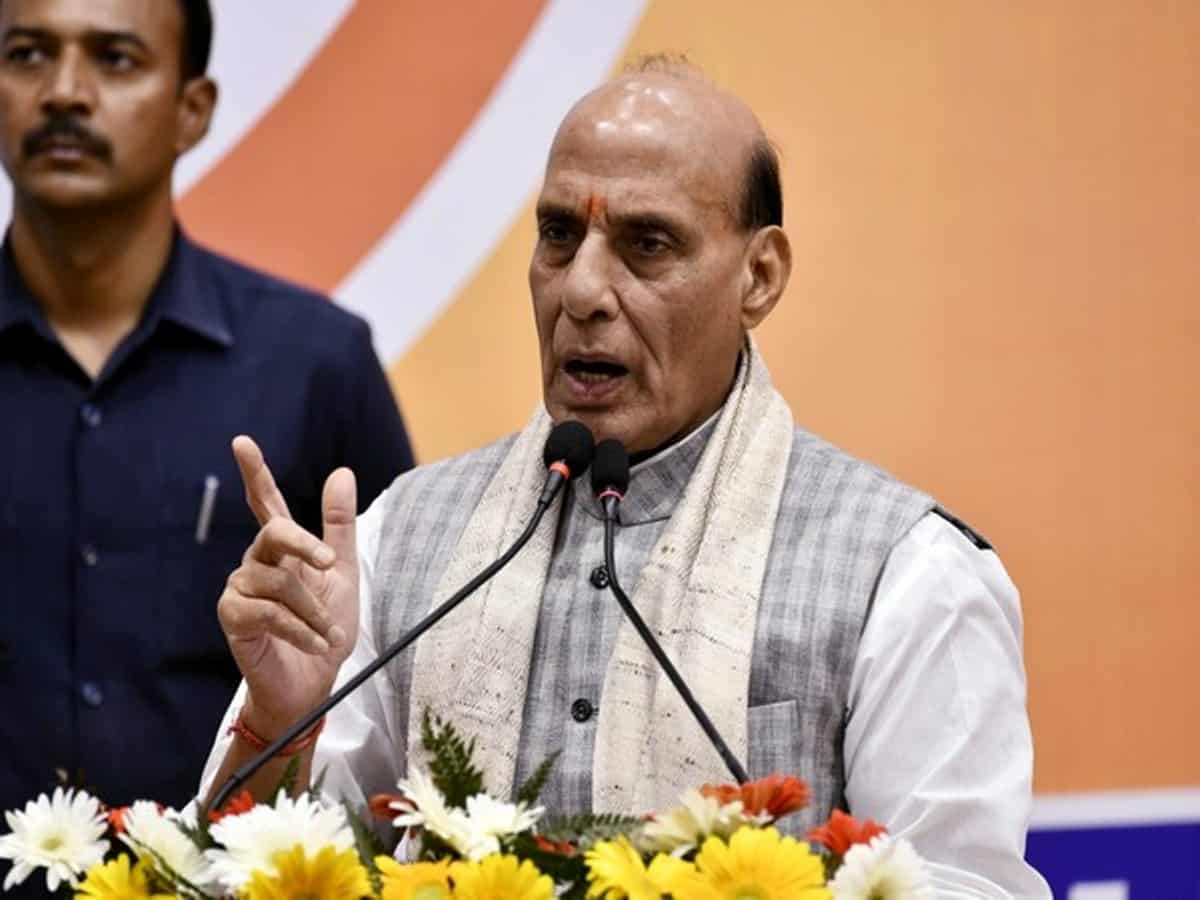
New Delhi: Defence Minister Rajnath Singh on Thursday defended the Agnipath scheme underlining that the future of youths joining as Agniveers would not be impacted, even as he said the government was “open” to bring any change in it “if required”.
During a fireside chat on the concluding day of the Times Now Summit here, Singh, while responding to a question on the criticism of the scheme, said such questions have “no standing” and underlined that everyone will accept that the armed forces should have a young profile.
He said recruiting youths would result in an increased risk-taking spirit and more tech-savvy jawans in the armed forces.
Today is the age of technology and the Indian youth should also be tech-savvy. Such youths are being recruited under this scheme as Agniveers, Singh said.
The future of these youths will not be impacted by the scheme, there is a “guarantee” for that, he said.
During the interaction, the defence minister also asserted that India and its borders are “totally secure” and the people of the country should have full faith in the armed forces.
On the Agnipath scheme, the defence minister said “whatever changes may be brought in the system, and further looking into their future, the provision of reservation in services, all these have been ensured”.
“And, if we see any drawbacks in it, then we are also ready to rectify them,” he added.
The minister said that the government will be “open to changes, if required”.
Earlier in his interaction, he also said, “Everyone will accept the fact that there should be youthfulness in the armed forces”.
“Normally, 30-50 years has been the age range of our jawans. But when jawans aged 18-20 will join as Agniveers, then the risk-taking spirit will be a bit higher,” he said, adding, senior jawans are discharging their responsibilities well, there is no two ways about it.
In June 2022, the Centre rolled out the Agnipath recruitment scheme for short-term induction of personnel into the armed forces with an aim to bring down the age profile of the three services.
The scheme provides for recruiting youngsters in the age bracket of 17 years and a half to 21 years for a four-year period with a provision to retain 25 per cent of them for 15 more years.
During the event, the defence minister also shared anecdotes from his nearly 50-year-long political journey.
Asked how he reacted to questions raised by many, including members of the opposition, on the India-China border issue, Singh said they never made him uncomfortable.
“In keeping with the country’s interests, I tell them (opposition) whatever I can. But in defence, there are many things which have strategic importance and we cannot tell them publicly. We try to steer clear of telling those things, whether it is (about) northern, western or eastern sector,” he said.
“I want to assure the people of the country…they should have full faith in our Army and security personnel,” Singh said.
Indian and Chinese troops are locked in an over three-and-half-year-long confrontation at certain friction points in eastern Ladakh even as the two sides completed disengagement from several areas following extensive diplomatic and military talks.
“Having been the defence minister for five years and home minister before that, I want to assure the people of the country based on what I have seen, understood and assessed that our borders and our country are totally secure,” he added.
The eastern Ladakh border standoff erupted on May 5, 2020, following a violent clash in the Pangong lake area.
The ties between India and China nosedived significantly following the fierce clash in the Galwan Valley in June 2020 that marked the most serious military conflict between the two sides in decades.
As a result of a series of military and diplomatic talks, the two sides completed the disengagement process in 2021 on the north and south banks of the Pangong lake and in the Gogra area.



